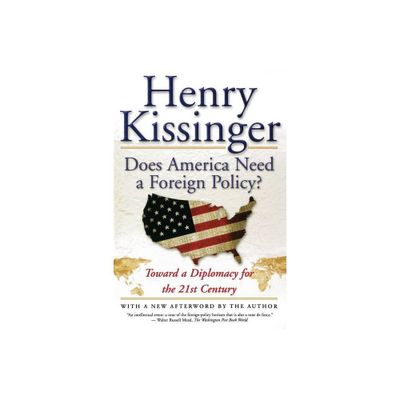Home
Ignorance Abroad: American Educational and Cultural Foreign Policy and the Office of Assistant Secretary of State
Loading Inventory...
Barnes and Noble
Ignorance Abroad: American Educational and Cultural Foreign Policy and the Office of Assistant Secretary of State
Current price: $75.00


Barnes and Noble
Ignorance Abroad: American Educational and Cultural Foreign Policy and the Office of Assistant Secretary of State
Current price: $75.00
Loading Inventory...
Size: OS
*Product Information may vary - to confirm product availability, pricing, and additional information please contact Barnes and Noble
In the past, the United States has focused on the military, economic, and diplomatic aspects of our foreign policy, while neglecting the area of educational and cultural affairs. Wieck considers the development of U.S. foreign educational and cultural policy from 1938 to the present, with a particular focus on the Kennedy initiative to enhance development of such a policy through the establishment in 1961 of the Office of Assistant Secretary of State for Educational and Cultural Affairs. As the United States struggles to compete in the arena of international trade, the importance of educational and cultural affairs as an integral part of U.S. foreign policy continues to grow.
Wieck surveys events leading to the establishment of the Office of Assistant Secretary of State for Educational and Cultural Affairs, as well as global developments calling for an increased emphasis on this aspect of foreign policy. He outlines the functions of the office and the efforts to hone its policy goals, and discusses the activities of the first incumbent, Philip Coombs. The final section explores Coombs's mysterious dismissal and the terms of subsequent Assistant Secretaries until the office was merged with U.S.I.A. Students of U.S. foreign policy and members of the international educational community will value this thorough analysis of a much-neglected area of U.S. foreign policy.
Wieck surveys events leading to the establishment of the Office of Assistant Secretary of State for Educational and Cultural Affairs, as well as global developments calling for an increased emphasis on this aspect of foreign policy. He outlines the functions of the office and the efforts to hone its policy goals, and discusses the activities of the first incumbent, Philip Coombs. The final section explores Coombs's mysterious dismissal and the terms of subsequent Assistant Secretaries until the office was merged with U.S.I.A. Students of U.S. foreign policy and members of the international educational community will value this thorough analysis of a much-neglected area of U.S. foreign policy.


















